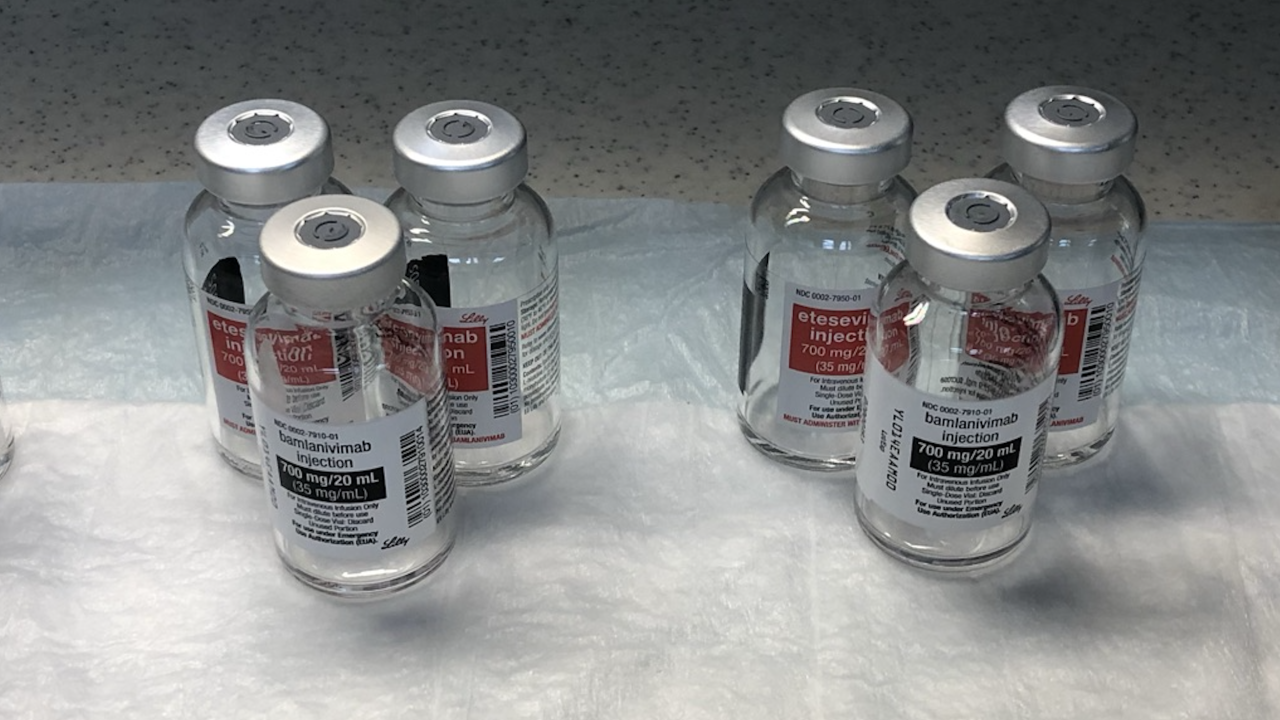LEXINGTON, Ky. (LEX 18) — While health experts say vaccination is the best weapon against COVID-19, monoclonal antibody therapy can give some who test positive a leg up against the virus.
“These are antibodies that bind to the COVID virus and help to clear it from the body quicker and greatly reduce the likelihood of progressing from mild or moderate infection to severe or critical infection,” said Dr. Sean McTigue, the interim chief of pediatric infectious diseases at Kentucky Children’s Hospital (KCH).
The Delta virus caused a surge in pediatric hospitalizations.
“Since July 30th, we had six times as many admissions to KCH for either severe or critical COVID-19 infections in children than we had for the entire pandemic up until that point,” Dr. McTigue said. “We have not yet had a single patient who has been immunized be admitted to Kentucky Children’s Hospital for severe, critical COVID.”
Dr. McTigue said monoclonal antibody therapy may have helped drastically reduce hospitalizations rates in children who tested positive.
“This is a treatment that when you are infected but not yet sick, this is to reduce your likelihood of becoming more sick and winding up in the hospital,” he explained.
The U.S. Food and Drug Administration (FDA) issued an emergency use authorization (EUA) for monoclonal antibody treatment.
KCH opened a Pediatric Speciality Infusion Clinic on Oct. 1 and serves as the state’s main pediatric monoclonal antibody infusion clinic.
Children can be referred to receive the therapy at KCH if they meet the FDA’s criteria. They must be 12 years of age or older weighing at least 40 kilograms (about 88 pounds) and be at high risk of developing severe COVID-19.
While high-risk factors may include diabetes, lung disease, immunodeficiencies, etc., Dr. McTigue said the ‘number one driver of risk for admission’ is obesity.
People who test positive for COVID-19 may get the treatment within 10 days of initial symptoms.
Dr. McTigue said parents should not wait to ask their family doctors about their child’s eligibility and should instead seek out treatment as soon as possible.
“By the time you wait to see if your child is really starting to have difficulty, that's generally when they're going to be at the point when they're having respiratory distress when they're requiring oxygen when they're going to need to be admitted to the hospital and at that point, you're beyond when monoclonal antibodies are a benefit,” he said.
The Pediatric Specialty Infusion Clinic can administer monoclonal antibody therapy to up to 26 patients a day.
Dr. McTigue said demand for the treatment in Lexington is currently low, and there is no waitlist as they push to get the word out about the new clinic. He said many with referrals have been able to schedule same-day appointments.
The clinic is open Monday through Friday from 3 p.m. to 9 p.m.
Patients are accepted by referral only. You can make an appointment here.



